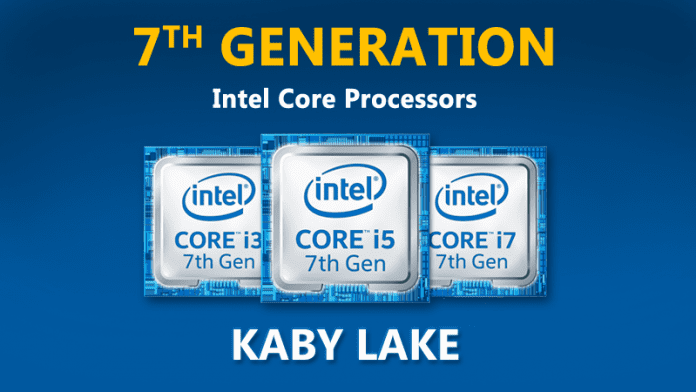Intel has announced its 7th Generation Core line, which is code-named “Kaby Lake” and is based on the 14-nm Kaby Lake architecture. Computers packed with Kaby Lake Chips are expected to hit the markets next month
Intel Finally Announces “Kaby Lake” 7th Generation Core Processor
Intel Inc. finally unveiled its 7th Generation Intel Core processors which are based on the 14-nm Kaby Lake Architecture. Intel every time delivered more powerful processors in every Core series.
As Intel showed earlier 7th gen Core processors would be able to handle 4K graphics without any glitch. Intel’s Kaby Lake will feature a new graphics architecture to improve performance in 3D graphics and 4K video playback.
Intel claimed that the new Kaby Lake processors can deliver up to 12 percent faster productivity performance and up to 19 percent Faster web performance. The Kaby Lake Processors will improve the battery life of a laptop up to 3 times while playing 4K videos.
Intel has also partnered with studios like Sony Pictures Home Entertainment and providers like FandangoNOW to bring their ULTRA 4K movie streaming services to the users of the Intel’s Kaby Lake processor.
Intel planned that its 7th gen Core processors would power more than 100 different 2 in 1s and laptops powered by 7th Gen Intel Core to be available starting in September through this holiday season.
Navin Shenoy, corporate VP and GM for Intel’s Client Computing Group wrote “We are incredibly excited about the strong partnership with our OEM customers and expect more than 100 different 2 in 1s and laptops powered by 7th Gen Intel Core to be available starting in September through this holiday season. We will share more on the rest of the 7th Gen Intel Core family for desktops and enterprise PCs early next year.”
We have recently AMD revealed new details about its new Zen architecture. The processor, which will be released in early 2017, is capable enough to compete with the best chips Intel. So we have to wait and watch how Intel’s Kaby Lake Processors perform in comparison to AMD’s Zen



